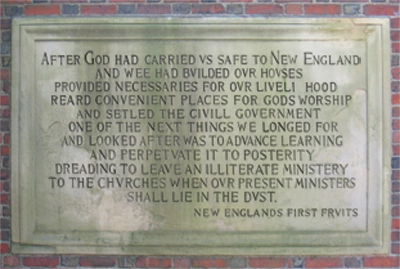Being Knowledgeable
By Pastor Chuck Swindoll

Slice it any way you wish; ignorance is not bliss. Dress it in whatever garb you please; ignorance is not attractive. Neither is it the mark of humility nor the path to spirituality. It certainly is not the companion of wisdom.
On the contrary, ignorance is the breeding ground for fear, prejudice, and superstition . . . the feeding trough for unthinking animals . . . the training field for slaves. It is blind and naked (Tennyson), the mother of impudence (Spurgeon); it brings despairing darkness (Shakespeare), never settles a question (Disraeli), nor promotes innocence (Browning). And yet it remains the favorite plea of the guilty, the excuse of the lazy, even the Christian’s rationalization for immaturity.
We dare not fall into that trap! Our spiritual fathers didn’t. Trace your heritage back to Moses, and you’ll find that the people were given the Truth of God in written form that they might know and that their children might know the right path to follow. In Samuel’s day, there was established a “school of the prophets” to dispel ignorance among the people. This philosophy carried into the New Testament as Jesus frequently rebuked His listeners for not reading, for not knowing the underlying principles for living. How often Paul expressed similar convictions with such strong words as, I “do not want you to be ignorant” (Romans 11:25; 1 Corinthians 10:1; 12:1; 15:34; 1 Thessalonians 4:13 NIV). Dr. Luke recorded great commendation for the church at Berea because they were “examining the Scriptures daily to see whether these things were so” (Acts 17:11).
Our own nation saw the need for being knowledgeable . . . for perpetuating an educated, well-trained body of godly people who could proclaim God’s message with intelligence, authority, and conviction. The oldest institution of higher learning in the United States—founded only sixteen years after the landing at Plymouth, Massachusetts—was established for the purpose stated on its cornerstone. It still remains etched in stone near an iron gate that opens to the campus of Harvard University:
After God had carried us safe to New England
and wee had builded our houses
provided necessaries for our liveli hood
reard convenient places for God’s worship
and setled the civill government
one of the next things we longed for
and looked after was to advance learning
and perpetuate it to posterity
dreading to leave an illiterate ministery
to the churches when our present ministers
shall lie in the dustNew England’s First Fruits
This continued until European liberalism, with its subtle narcotic of humanism and socialism, began to paralyze the nerve centers of theological thought and weaken educational philosophy. Doubt and despair replaced certainty and hope. Mental discipline, honed on the wheel of exacting academic requirements and intellectual integrity, began to lag. Permissiveness became the order of the day. This has evolved into a postmodern mentality that now considers a commitment to truth and a thorough study of God’s Word a joke. Thank God, there are some exceptions. But they are precious few . . . especially among clear-thinking saints.
To be sure, there are dangers connected with being knowledgeable. Solomon warned us of the worst in Ecclesiastes—PRIDE—the wearying, futile pursuit of knowledge, a flesh trip that can cause a head to outgrow a heart. Mere intellectualism can be only “striving after wind” (Ecclesiastes 1:17).
Our ministry is purposely named Insight for Living Ministries because that’s what knowledge is to be used for—for practical, life application. May I personally urge you to become a better student of your Bible? Familiarize yourself with its content. Filter today’s difficult times through its grid. The better you know the Word of God, the more quickly you will recognize the path to help you find your way through the fog of our postmodern mist.
My single desire is to support the premise that knowledge, rather than being an enemy of the faith, is an ally . . . perhaps one of our strongest. Rest assured; we will forever remain committed to excellence in communicating biblical truth . . . and its application. That is Insight for Living Ministries.
About the author
 Pastor Chuck Swindoll
Pastor Chuck Swindoll
Pastor Charles R. Swindoll has devoted his life to the accurate, practical teaching and application of God’s Word. He is the founding pastor of Stonebriar Community Church in Frisco, Texas, but Chuck’s listening audience extends far beyond a local church body. As a leading program in Christian broadcasting since 1979, Insight for Living airs around the world. Chuck’s leadership as president and now chancellor emeritus at Dallas Theological Seminary has helped prepare and equip a new generation of men and women for ministry.
